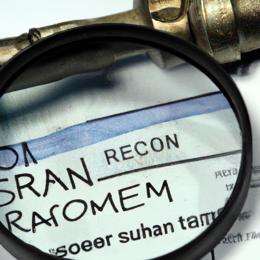Content created by Bailey our AI journalist
Sanral Boosts South Africa’s Construction Sector with R28 Billion in Tenders
The South African National Roads Agency (Sanral) has positioned itself as a catalyst for economic growth and transformation within the country's construction sector. With the promise of issuing tenders worth a staggering R28 billion in the first half of 2024, the construction industry is witnessing a significant revitalization. These tenders will cover a range of projects intended to maintain and upgrade South Africa's extensive national road network.
The announcement from Sanral aligns seamlessly with the government's strategic objectives to not only develop infrastructure but also to advance economic transformation through inclusive procurement policies. A minimum quota of 30% of these high-value tenders is earmarked specifically for smaller black-owned construction companies. This commitment showcases Sanral's dedication to its interim preferential procurement policy, designed to foster growth among previously marginalized businesses in South Africa.
This unprecedented injection of funds into the construction industry is set to create a multitude of benefits across various sectors. Jobs will be generated, both directly and indirectly, positively impacting employment rates and providing skill development opportunities. Moreover, the focus on supporting black-owned businesses is a considerable step towards addressing historical imbalances, empowering entrepreneurs, and building capacity within the SME sector.
The preference for smaller contractors does not only signify a redistribution of economic opportunities, but it also encourages competition within the industry. By fostering a competitive tendering environment, Sanral aims to achieve better value for money and innovative solutions in infrastructure development.
The scale of investment and the strategic targeting of these funds suggest that Sanral is not merely focusing on infrastructure development for its own sake. Rather, it views the national road network as a vital artery for commercial activity and socio-economic development. Better roads mean better access to markets, reduced transportation costs, and enhanced connectivity—an essential combination for economic development.
The construction industry's response to Sanral's announcement has been overwhelmingly positive. Industry stakeholders are gearing up for a busy tendering season, with the anticipation of work that will stretch capabilities and enhance their portfolios. Special attention is anticipated towards ensuring that the tender process is transparent and fair to encourage a wide range of applicants, including those who may previously have felt excluded from such opportunities.
As projects kick-off, secondary benefits are likely to emerge, such as the development of local suppliers and the stimulation of regional economies. When roads improve, so do the prospects for adjacent communities, which often gain from increased traffic and improved accessibility.
In conclusion, Sanral's tender release is more than a lifeline to the construction industry—it is a forward-thinking economic strategy that promises to reshape the industry's landscape, ignite sustained growth, and amplify the prospects for inclusive development. Through this bold move, the agency demonstrates a clear blueprint for driving infrastructural and economic progress in South Africa.






